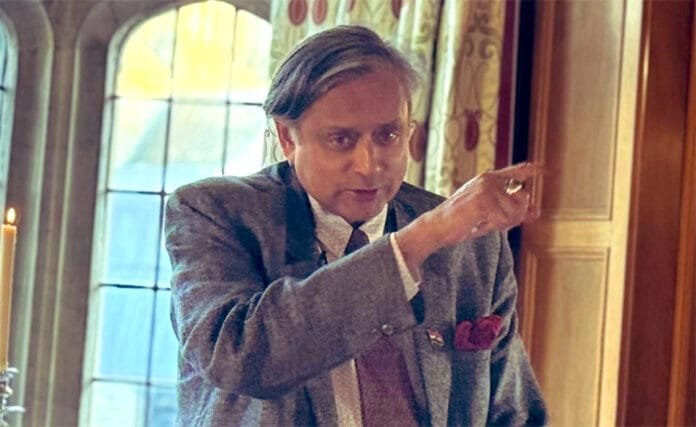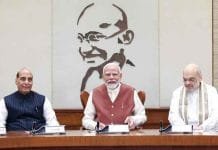A Bold Reflection on India’s Darkest Democratic Chapter
In a stunning act of political candor, Congress MP Shashi Tharoor has publicly criticized his own party over the Emergency period (1975–1977) imposed by then Prime Minister Indira Gandhi. Tharoor’s remarks, published in a Malayalam newspaper, have reignited national discourse around one of the most controversial eras in Indian democratic history.
He did not mince words—labeling the Emergency as a time of state-sponsored cruelty, masked under the guise of maintaining discipline and order. By calling out the excesses committed during this time, particularly those linked to Sanjay Gandhi’s policies, Tharoor has cornered his party into facing uncomfortable truths.
Indira Gandhi’s Emergency: A Period of Fear and Suppression
From June 25, 1975, to March 21, 1977, India witnessed the suspension of constitutional rights, mass arrests of opposition leaders, censorship of the press, and systematic dismantling of democratic institutions. Under Article 352, Prime Minister Indira Gandhi declared a state of Emergency, citing internal disturbances.
Tharoor described this chapter not simply as “dark” but as a cautionary tale—a deviation from democracy that inflicted irreversible trauma on the Indian republic. Thousands were detained without trial, and fear became a mechanism of governance.
Forced Sterilization: A Stain on Public Policy
Shashi Tharoor has singled out one of the most horrifying initiatives of that time—Sanjay Gandhi’s mass sterilization campaign. Touted as a family planning drive, this initiative turned into a coercive and inhumane campaign targeting the poor and marginalized, especially in rural belts.
He highlighted that people were dragged from their homes, threatened, and even beaten to meet sterilization quotas. Clinics functioned like assembly lines, and consent was a concept conveniently ignored. It was a blatant violation of human rights, with lasting psychological and demographic scars.
Demolition of Slums: Human Lives Reduced to Rubble
In his reflection, Tharoor didn’t stop at rural India. He turned the spotlight on urban atrocities—particularly the demolition of slums in Delhi. Entire communities were uprooted in the name of beautification and order. Bulldozers razed homes without warning. Thousands were rendered homeless overnight.
These clearances, framed as urban development, were acts of state violence. No rehabilitation plans, no safety nets—just the brute force of the state. Tharoor emphasized that the poor paid the price for the ambitions of the elite.
Democracy Must Be Defended Relentlessly
Tharoor’s central thesis is a powerful one: Democracy is not self-sustaining—it must be guarded. He warned that authoritarian impulses can creep back under new pretexts—national security, economic development, or public morality. These narratives may echo the past, but they are dressed for the present.
He underscored that democracy’s erosion is often silent, not explosive. Laws may be passed. Rights may be slowly curbed. Opposition may be silenced one voice at a time. What happened in 1975 can happen again—unless we remain vigilant.
Congress Faces Internal Reckoning
By openly confronting the actions of Indira and Sanjay Gandhi, Tharoor has created a moment of internal reckoning for the Congress party. For decades, the party has struggled with how to contextualize the Emergency within its official narrative. Most leaders have either ignored or defended it.
Tharoor, a member of the Congress Working Committee, has now drawn a line in the sand. His statements call for an honest confrontation of history, not just for the sake of the past but as a safeguard for the future.
India Today vs India in 1975: A Changed Yet Cautious Republic
Tharoor noted that India today is not the same nation it was in 1975. We are more confident, more connected, and more aware of our rights. But that doesn’t make us immune to regression. Political centralization, judicial tampering, and media manipulation remain very real dangers.
He insisted that citizens must remain alert, especially during times of crisis when leaders invoke patriotism and order to justify undemocratic behavior. The Emergency is not just history—it is a template that could be reused if left unchecked.
The Global Warning Within India’s Past
Beyond India’s borders, Tharoor offered this as a global reminder. Democracies worldwide are witnessing the rise of authoritarian tendencies. Populist leaders, controlled media, and weakened institutions are a common theme across continents.
The Emergency stands as an Indian example of how democracy can collapse from within, not through a coup but through legal and constitutional loopholes. For nations watching India, this is a vital lesson on the fragility of freedom.
Conclusion: History as a Guide, Not a Weapon
Shashi Tharoor’s act is not merely political defiance; it is a call for institutional introspection. He challenges us to stop sanitizing history for partisan comfort. Instead, we must use it to build a stronger, more accountable democracy.
His words pierce through the fog of denial: “The Emergency must never be forgotten—not just for what it did, but for what it warns us about.”
It’s now up to both the public and political institutions to heed the alarm and ensure that India never repeats 1975. Memory, if used well, is the most powerful defense against tyranny.















